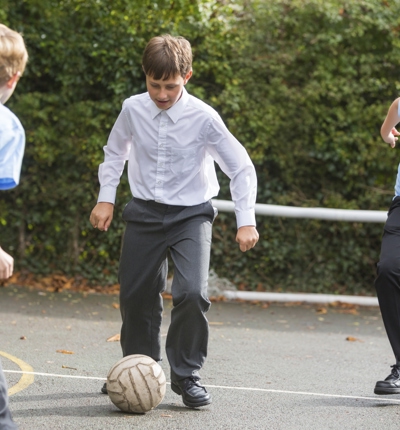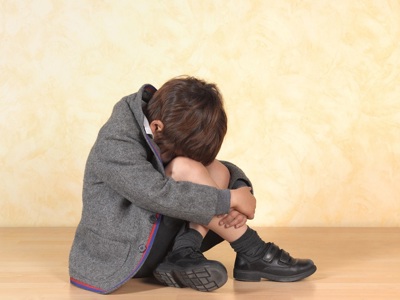
Does Independent Inquiry into Child Sexual Abuse report on residential schools go far enough?
Associate solicitor Andrew Lord considers whether the latest report from the Independent Inquiry into Child Sexual Abuse will bring about change to combat sexual violence and harassment in schools.
Posted on 03 March 2022
This week’s report by the Independent Inquiry into Child Sexual Abuse (IICSA), linked to the Residential Schools Investigation, attempts to cover a lot of ground, and on first review it feels as though much of the report has been said before.
It credits the Everyone’s Invited movement with drawing attention to harmful sexual behaviours amongst children. Their dedication to calling out rape culture and highlighting how multiple institutions have on many occasions failed to adequately combat abuse among school children is inspiring. This is the reason why it is more important than ever that we keep that conversation going, so as to capitalise on the momentum and to bring about real change for future generations of children.
Having represented survivors resident at several private and state schools, including those subjected to abuse by staff and others abused by their school peers, I was waiting keenly for IICSA’s latest report. Given the breadth of the topics covered I will focus on a select few points. The full IICSA report can be read online here.
Guidance for schools
The IICSA report notes that “statutory guidance and standards do not currently address the additional risks inherent in boarding settings, including the increased risks of harmful sexual behaviour between children”. Moreover, it says that “statutory guidance in England leaves schools to decide what safeguarding training is appropriate for staff.”
Just last week I spoke at a webinar about the Department for Education’s advice, “Sexual violence and sexual harassment between children in schools and colleges”. This is not statutory guidance and so does not attract any significant comment by IICSA.
However, my view is that the Department for Education’s advice ought to have come in for greater scrutiny as it attempts to provide assistance to schools and colleges when facing disclosures of harmful sexual behaviour.
My particular concerns include:
- It is not statutory guidance and so could be considered toothless
- It is aimed at specific categories of persons involved in the running of schools, and so there is already a question mark over the extent to which the advice can effectively infiltrate all schools and resonate with all staff members
- It does not go far enough in terms of how schools ought to address competing rights of the children involved
- It contains just four case examples as good practice for schools. Many more criticisms could be lobbied at the advice, which, in my experience, can lead to vastly different responses to a disclosure of harmful sexual behaviour depending upon which desk disclosures it falls upon. It therefore seems a missed opportunity for IICSA to analyse this advice more thoroughly.
Education
A new Relationships and Sex Education (RSE) curriculum became compulsory in England in September 2020, but the IICSA report notes that roll-out was impacted due to Covid. Wales is due to introduce a new RSE curriculum in 2022
RSE is acknowledged within the report as having an important role in the prevention of harmful sexual behaviour among children. It is also acknowledged that the education system in England and Wales has not provided good quality RSE to children with special educational needs and disabilities (SEND).
Notwithstanding the impact of Covid, RSE came in for particular criticism within an Ofsted rapid review into sexual abuse in schools and colleges last summer. In a blog post considering the review last June, I set out how consideration ought to be given to strengthening the offering of such education, ensuring that it is both adequately resourced and teachers have a good handle on the subject, so as to instil confidence in children and young people to be able to discuss sensitive matters in an appropriate forum.
IICSA recommends an urgent review in order to improve the provision and effectiveness of relationships, sex and health education (RSHE) for children with special educational needs and disabilities. This must be right, but I also query whether there has been a missed opportunity to enforce the importance of RSE given that Ofsted felt able to criticise the offering in their own report last summer.
Regulation
The issue of regulation is incredibly important and IICSA observations on this must be acknowledged. It is concerning to read that “in many of the schools considered, inspection reports judged the school to have good or compliant safeguarding practices at a time when safeguarding practice at the school was deficient or not compliant”. IICSA also highlights how the revised guidance for schools does not make it clear that safeguarding omissions can be so serious as to amount to gross incompetence by staff members.
In terms of recommendations, IICSA suggests changes to bring misconduct of teaching assistants, learning support staff and cover supervisors within the jurisdiction of the Teaching Regulation Agency.
Many of the families I have represented want to be reassured that lessons have been learned and abuse of a similar nature will not happen again within the school. It is often when they feel they are getting nowhere with the school that they reach out for legal advice, and so I anticipate they will welcome the report’s observations on regulation of staff.
With that said, mandatory reporting was notably missing from the recommendations. The introduction of a statutory requirement for staff to report suspicions of abuse is something which has long been called for by campaigners, and the Inquiry has said that it shall revert back to this point within its final report. Given that this investigation report refers to the reputations of some institutions being seen as more important than potential victims when allegations were made, this does feel like a significant omission.
Conclusion
Chair of the Inquiry, Alexis Jay said, “in some cases it was clear that protecting the reputation of the school was prioritised over the protection of children from sexual abuse”. It is unfathomable to me, although depressingly unsurprising, that in this day and age initial instinct goes towards protecting an institution over a child alleging sexual abuse.
When survivors are brave enough to speak out about their experiences of abuse they ought to be treated with the utmost respect, and lessons must be learned if we are to bring about change to prevent future generations of children from being impacted by abuse. Therefore, while we ought to welcome any further scrutiny of the issues impacting on children in residential schools, my feeling is that this latest IICSA investigation report will not be seen as having gone far enough in suggesting impactful change to mean that it will be universally welcomed by survivors.




